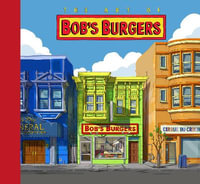From the New York Times bestselling author of But What if We're Wrong, a wise and funny reckoning with the decade that gave us slacker/grunge irony about the sin of trying too hard, during the greatest shift in human consciousness of any decade in American history. It was long ago, but not as long as it seems: The Berlin Wall fell and the Twin Towers collapsed. In between, one presidential election was allegedly decided by Ross Perot while another was plausibly decided by Ralph Nader. In the beginning, hardly anyone had a cell phone, but every name was listed in something called a phone book unless you paid to keep it out. Everyone answered their landline because you didn't know who it was. By the end, it was a country where most middle-class adults had cell phones, exposing your address without permission was an act of emotional violence, and nobody picked up a ringing phone receiver because you didn't know who it was.
The 90's brought about a revolution in the human condition we're still groping to understand. Happily, Chuck Klosterman is more than up to the job.
Beyond epiphenomena like Cop Killer and Pulp Fiction and Zima, there was, of course, the internet. Once upon a time, people accepted that they didn't know things. And while the internet may have failed at tamping down conspiracy theories, it did prove good at confirming basic facts, like whether Nelson Mandela in fact died in prison in the 1980s. After the 90s, "the Mandela Effect," the name given for widespread belief in something fundamentally incorrect, became the province of history and truly lazy people. But there was also a comfort in this unknowing, grounded in the unconscious assumption that mental individualism was still a viable way to live.
On a 90's Thursday night, more people watched any random episode of Seinfeld than the grand finale of Game of Thrones. But nobody thought that was important; if you missed it, you simply missed it. It was the last era that held to the idea of a true, hegemonic mainstream before it all began to fracture, whether you found a home in it or defined yourself against it.
In The Nineties, Chuck Klosterman makes a home in all of it: the film, the music, the sports, the TV, the politics, the changes regarding race and class and sexuality, the yin/yang of Oprah and Alan Greenspan. In perhaps no other book ever written could the sentence, "The video for 'Smells Like Teen Spirit' was not more consequential than the reunification of Germany" make complete sense. Chuck Klosterman has written a multi-dimensional masterpiece, a work of synthesis so smart and delightful that future historians might well refer to this entire period as Klostermanian.
About the Author
Chuck Klosterman is the bestselling author of eight nonfiction books (including Sex, Drugs, and Cocoa Puffs; I Wear the Black Hat; But What If We're Wrong?; and Killing Yourself to Live) and two novels (Downtown Owl and The Visible Man). He has written for The New York Times, The Washington Post, GQ, Esquire, Spin, The Guardian, The Believer, Billboard, The A.V. Club, and ESPN.
Klosterman served as the Ethicist for The New York Times Magazine for three years, appeared as himself in the LCD Soundsystem documentary Shut Up and Play the Hits, and was an original founder of the website Grantland with Bill Simmons.
























